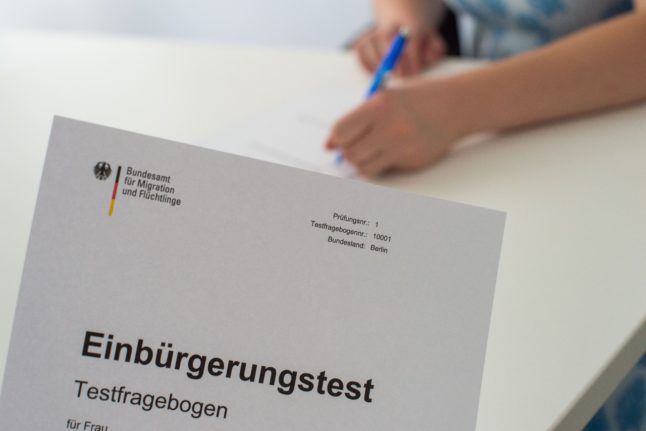Last Friday, new details emerged of the German coalition government’s plans to make German citizenship easier to come by.
Amongst other reforms, the proposed changes will make it possible to become a German citizen after five instead of eight years and, in the case of “special integration achievements”, this should even be possible after just three years.
The proposals have already triggered a backlash from the main opposition party in the German parliament – the Christian Democrats (CDU/CSU) – and from the Free Democrats (FDP), which are a member of the coalition government. Criticisms range from the measures representing a “devaluation” of the German passport to being ill-timed.
READ ALSO: EXPLAINED: Could Germany’s conservatives block dual citizenship?
However, in view of the current worker shortage in Germany, employment experts and business leaders have come out in support of the proposals. Germany is in the midst of a huge worker shortage and currently needs 400,000 additional workers a year to plug the gap in the labour market and, in their view, simplifying naturalisation laws could help ease this looming crisis.
The head of the Federal Employment Agency, Andrea Nahles, stressed the importance of immigration for the labour market as a whole and told the Süddeutsche Zeitung on Tuesday: “Because of demographic change, there is no scenario where we can get by without major immigration.”
What are people saying?
The deputy head of the SPD parliamentary group, Dirk Wiese, told the Berliner Morgenpost that, by making naturalisation easier, the coalition government will “make Germany more attractive as a location for skilled workers”.
Similarly, the head of the German Federation of Trade Unions (DGB), Yasmin Fahimi, told Redaktionsnetzwerk Deutschland that easier naturalisation would be a positive signal to millions of people with a migration background in Germany and, at the same time, to all interested skilled workers abroad.
READ ALSO: EXPLAINED: How Germany plans to make immigration easier for skilled workers
According to the chairwoman of the Council of Economic Experts, making naturalisation easier would also strengthen the integration of foreigners living and working in Germany.
“In view of demographic change and the growing shortage of skilled workers and labour, this is absolutely to be welcomed,” she said.
Federal managing director of the German Association of Small and Medium-Sized Businesses (BVMW), Markus Jerger, also told the Redaktionsnetzwerk Deutschland that the reduction of bureaucratic hurdles in the naturalisation of software engineers and nursing staff could give Germany a longtime leg up in these fields, which are consistently in need of employees.
Coming to stay
Wido Geis-Thöne from the employer-affiliated Institute of German Economy (IW) pointed out that expeditated naturalisation would also help more immigrants stay in the country and continue working. Until now, many such workers leave Germany again after a certain time, he said.
READ ALSO: Germany to ease citizenship rules for children of foreign parents
Andreas Jahn, Head of Policy and Foreign Trade at the German Association of Small and Medium-Sized Businesses (BVMW), said that having the German passport should encourage people to stay in agriculture in particular – as well as to integrate better – especially in rural areas.



 Please whitelist us to continue reading.
Please whitelist us to continue reading.
Member comments